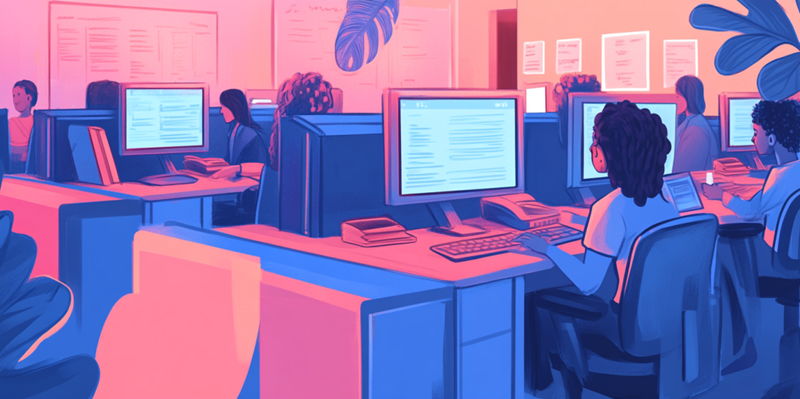Gen Z, individuals born between 1997 and 2012, presents unique challenges and opportunities for the modern workplace, often characterized by friction between this young workforce and their employers. Employers frequently identify struggles in integrating Gen Z into their teams, while Gen Z workers often experience high levels of burnout and dissatisfaction. According to a ResumeBuilder.com survey involving 1,344 managers and business leaders, 74% consider Gen Z the most difficult generation to work with, primarily due to perceived deficiencies in technological skills, effort, and motivation. Employers are left grappling with how to manage these issues effectively.
However, it is not only the employers facing difficulties; Gen Z workers themselves are encountering significant hurdles. A global study conducted by Walr in collaboration with UKG surveyed close to 13,000 frontline workers and managers, uncovering that an alarming 83% of Gen Z employees feel burned out, with over one-third contemplating quitting their jobs. Additionally, 72% of these workers reported negative interactions with managers, their colleagues, and even customers. The combination of Gen Z’s burnout and negative workplace interactions exacerbates the existing friction and contributes to a cycle of dissatisfaction and disengagement.
The Challenges for Employers
For employers, integrating Gen Z into the workforce is becoming increasingly complex due to a variety of factors. Managers have noted difficulties in adapting training and communication styles to meet the expectations and learning preferences of their Gen Z employees. This generation, having grown up with technology, is often presumed to be tech-savvy, yet managers frequently find their technological skills lacking in a professional context. Compounding these issues, employers perceive a deficit in effort and motivation among Gen Z workers, which can lead to frequent misunderstandings and frustration on both sides.
Moreover, traditional workplace hierarchies and expectations can sometimes clash with Gen Z’s desire for a more flexible, dynamic, and inclusive work environment. This generation places a high value on work-life balance, mental health, and meaningful work, and is often more vocal about these needs than previous generations. Employers, therefore, need to navigate these new expectations while trying to maintain productivity and cohesion within their teams. Addressing these concerns requires a reassessment of workplace policies, training programs, and communication strategies to better align with the values and preferences of Gen Z employees.
Bridging the Gap
To bridge the gap between Gen Z employees and their employers, both parties must make concerted efforts to understand and adapt to each other’s needs. Employers need to recognize the unique strengths and challenges that Gen Z brings to the workplace. This includes providing mentorship, fostering open communication, and creating an environment that supports work-life balance and mental well-being. Additionally, investing in ongoing training to enhance technological skills and offering opportunities for meaningful work can help align Gen Z’s expectations with organizational goals. By taking these steps, employers can better integrate Gen Z into their teams, reduce burnout, and create a more cohesive and productive work environment.

